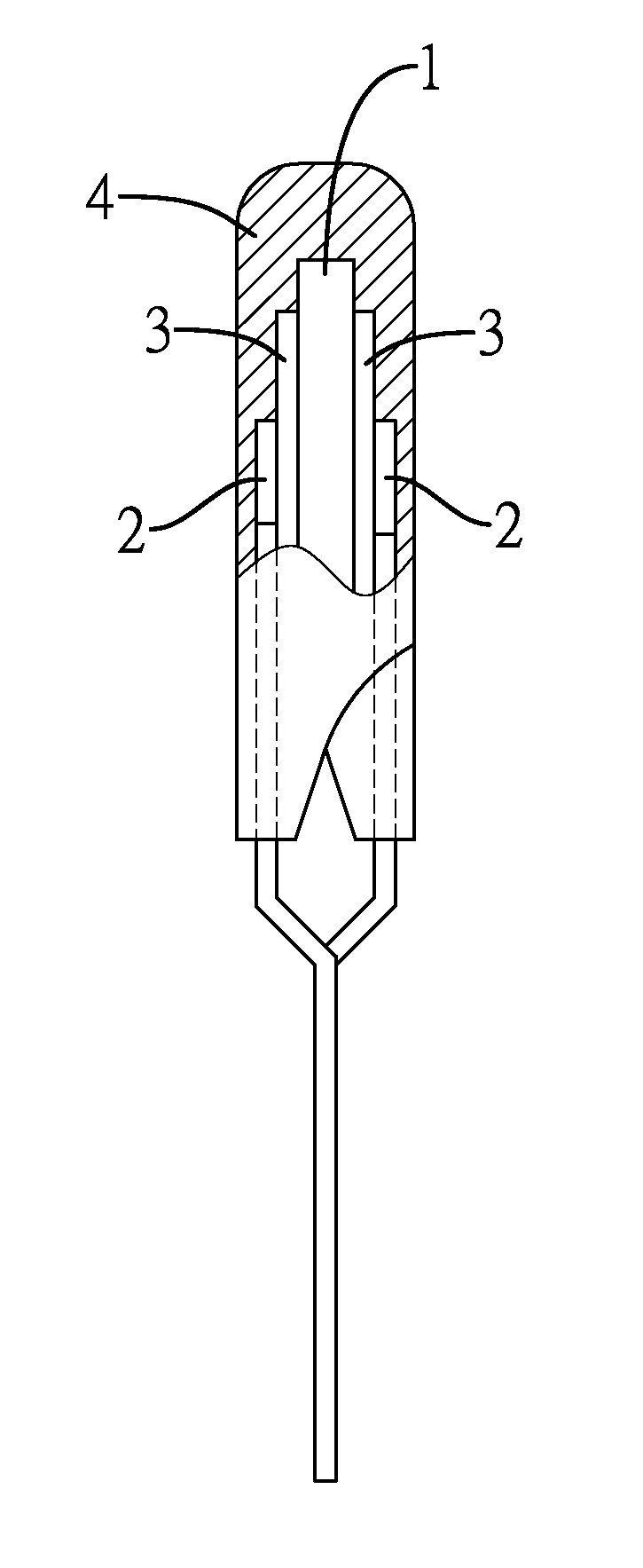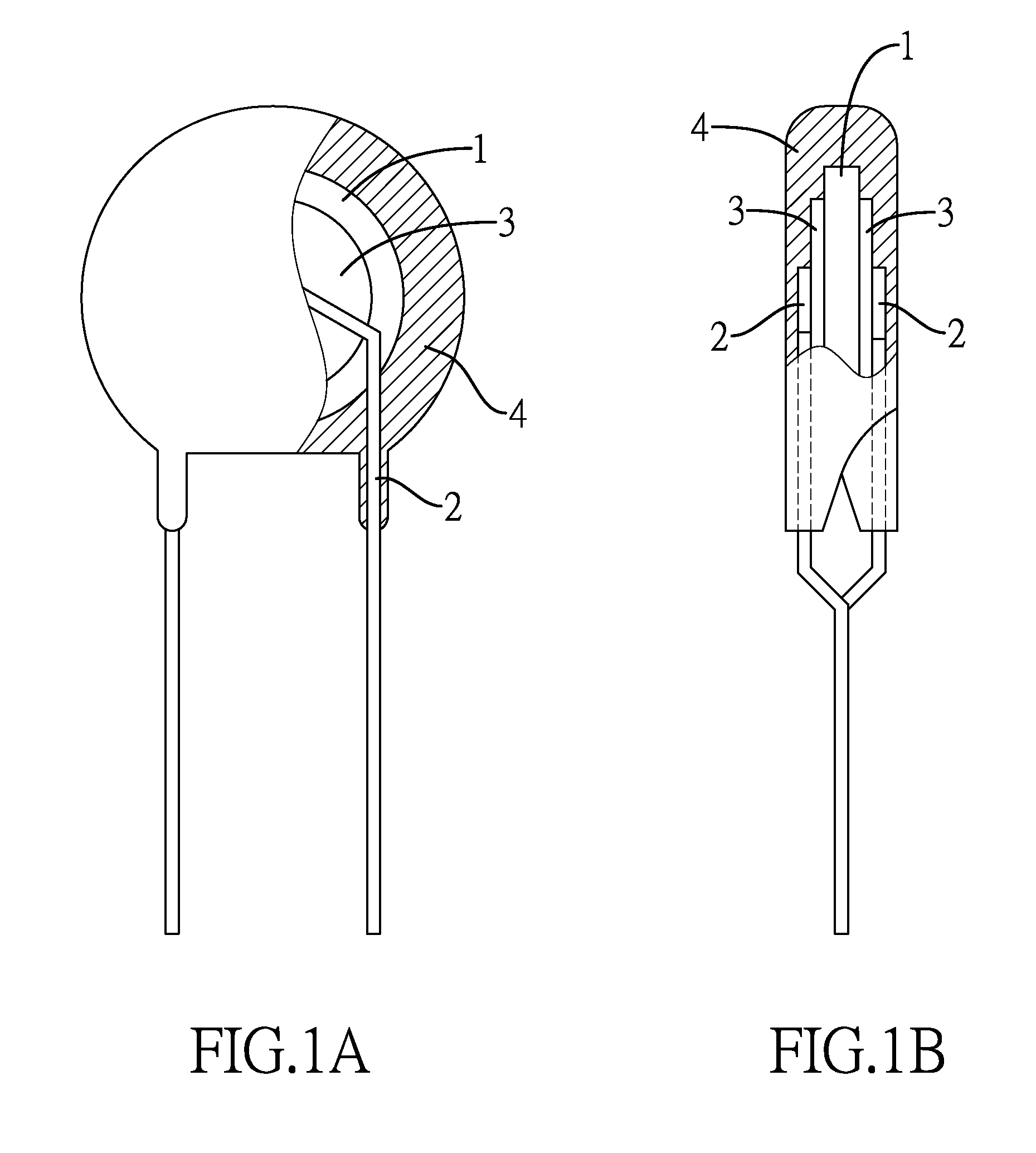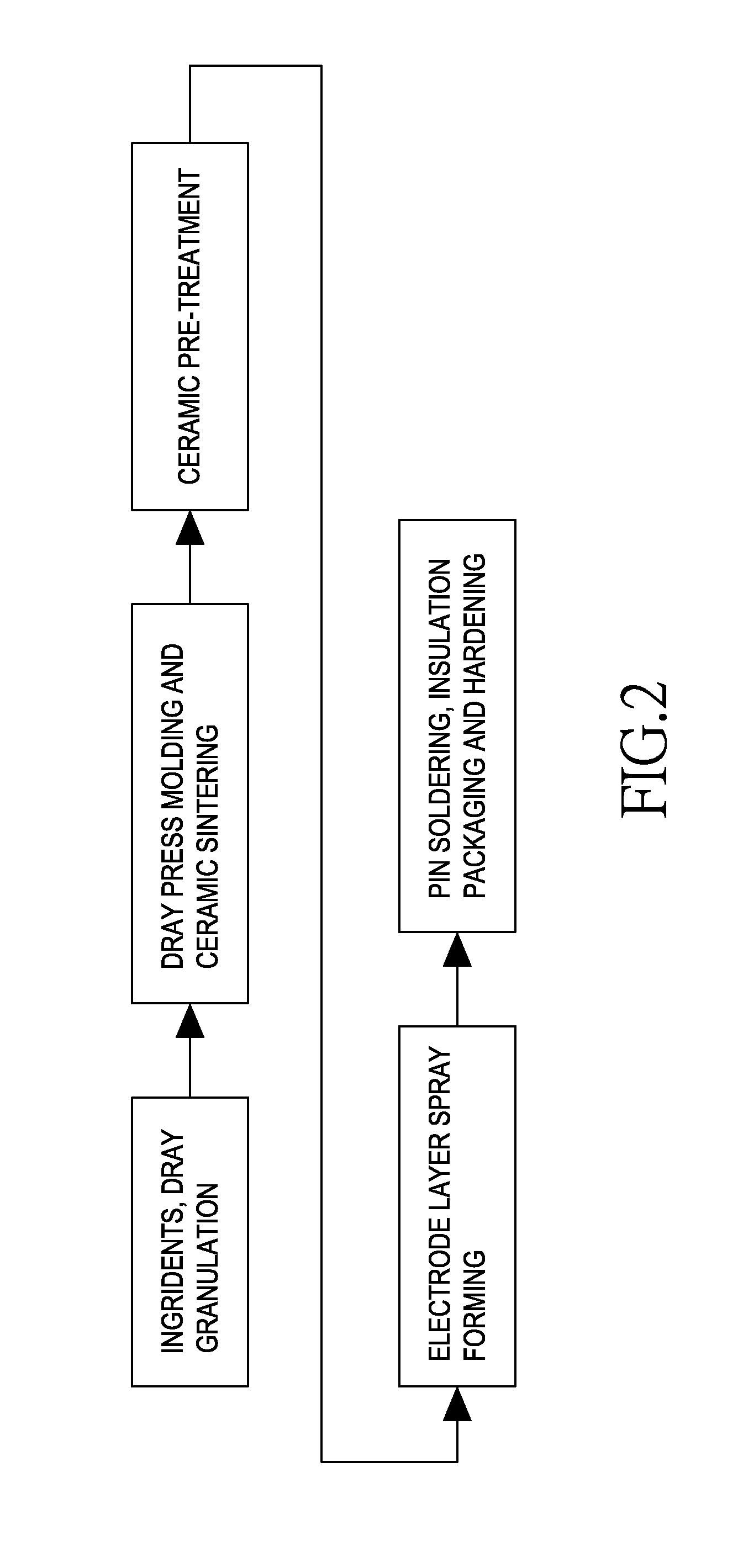Electrode component and method for fabricating the same
a technology of electrode layer and electrode layer, which is applied in the direction of resistive material coating, fixed capacitor details, metal/alloy conductors, etc., can solve the problems of high production cost, unsatisfactory bonding strength between silver electrode layer and ceramic substrate, and high production cost of precious silver material, so as to reduce the risk of separable electrode interface, reduce production cost, and shorten the fabrication process of electrode layer
- Summary
- Abstract
- Description
- Claims
- Application Information
AI Technical Summary
Benefits of technology
Problems solved by technology
Method used
Image
Examples
Embodiment Construction
[0035]With reference to FIGS. 1A and 1B, an electrode component in accordance with the present invention includes a ceramic substrate 1, two electrode layers 3, two pins 2 and an insulating layer 4.
[0036]The two electrode layers 3 are respectively formed on two opposite surfaces of the ceramic substrate 1. The two pins 2 are respectively connected to the electrode layers 3. The insulating layer 4 encloses the ceramic substrate 1, the electrode layers 3 and a portion of each pin 2.
[0037]With reference to FIG. 2, a method for fabricating an electrode component in accordance with the present invention is shown. Given the electrode component as a varistor, the method includes steps of spray granulation, dry press molding, ceramic sintering and ceramic pre-treatment, which are known as conventional techniques and are not repeated here. After the ceramic substrate 1 is pre-treated, a process of spray-forming the electrode layers 3 and subsequent steps for pin soldering, insulation packagi...
PUM
| Property | Measurement | Unit |
|---|---|---|
| thickness | aaaaa | aaaaa |
| time | aaaaa | aaaaa |
| temperature | aaaaa | aaaaa |
Abstract
Description
Claims
Application Information
 Login to View More
Login to View More - R&D
- Intellectual Property
- Life Sciences
- Materials
- Tech Scout
- Unparalleled Data Quality
- Higher Quality Content
- 60% Fewer Hallucinations
Browse by: Latest US Patents, China's latest patents, Technical Efficacy Thesaurus, Application Domain, Technology Topic, Popular Technical Reports.
© 2025 PatSnap. All rights reserved.Legal|Privacy policy|Modern Slavery Act Transparency Statement|Sitemap|About US| Contact US: help@patsnap.com



